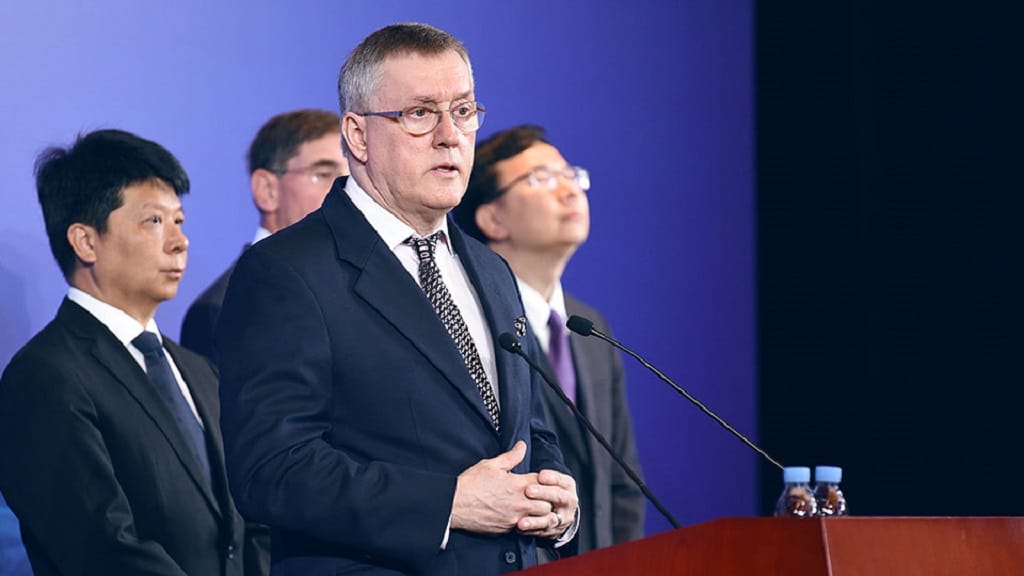Biden Executive Order on Chinese Investment Restrictions a ‘Policy Misstep,’ Says Huawei Official
A new White House order could further push Huawei and other Chinese firms to be more self-sufficient, executive says.

June 9, 2021–A Huawei representative said Wednesday that the Biden administration’s executive order this month restricting investment in Chinese firms is a “policy misstep” that will yield only short-term American gains.
In response to a question from Broadband Breakfast at a Huawei event Wednesday, John Suffolk, the Chinese company’s global head of cybersecurity and privacy officer, said the U.S. will see a short-term gain in its effort to restrict what the White House alleged sees as a cybersecurity threat from Chinese companies, but that could eventually give way to the loss of a $400-billion market.
“The reality is, blocking investment from American companies into Chinese companies will have an impact for American companies and Chinese companies, including Huawei,” said Suffolk, who was also the United Kingdom’s chief information security officer from 2006 to 2011.
But “the Chinese chip market is about $400 billion a year,” Suffolk added. “So that’s a big market, and if China is sitting here thinking, we can’t buy chips from Intel or Qualcomm, then we’ll have to make our own. And if they’re making their own, that $400 billion market suddenly will move away from America.
“So I think this may have a short-term advantage for the U.S. Personally, I think it’s a policy misstep.”
Biden administration executive order restricting American investment into Chinese companies
Last week, the White House issued an executive order restricting investment by American firms to 59 Chinese companies, including Huawei. The order, which takes effect August 2, stems from years-long allegations that Chinese companies must run their operations through the Chinese Communist Party, which allegedly surveils foreign adversaries.
The order also comes as global supply chains in the technology sector are stricken by a shortage in chips caused by the Covid-19 pandemic. These chips power many important technologies, including networking equipment like modems, smartphones and graphics cards.
It also comes about seven months after the U.S. government approved a license for Qualcomm, one of the world’s largest smartphone chip suppliers, to sell its 4G mobile chips to Huawei.
Suffolk said the policy could backfire, adding he would give the Chinese a timeline of three to five years at which point that nation could become self-sufficient in this area.
“What’s going to happen is there’s going to be companies in Asia that can compete with American companies head-on, so not only have American companies lost a $400-billion market, they are going to have stiff competition,” Suffolk said.
“It will slow us up, it will slow up other Chinese companies, but in essence we will, as other companies will…find an alternative supply route.”
Huawei’s growing domestication
In fact, some have pointed to Huawei self-sufficiency as an advantage to Washington. In April, Scott Malcomson, a former senior advisor to the U.S. State Department, said Chinese companies’ growing success at home has proven to be a boon for America because they are inclined to stay there.
He noted that the Chinese have adapted to a number of past executive orders and hostile attitudes toward it from the Trump administration by developing independence in a variety of fields on Chinese soil, including in satellites, undersea fiberoptics and e-commerce.
Joy Tran, a senior vice-president of public affairs at Huawei, has said that the Chinese market now makes up about 65 per cent of the company’s global revenue.








